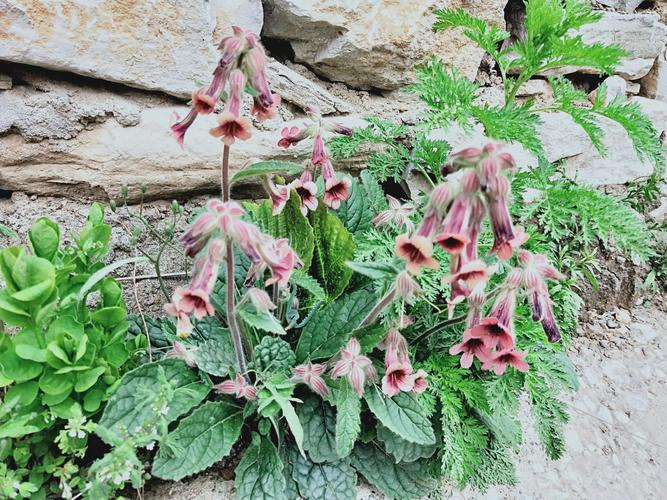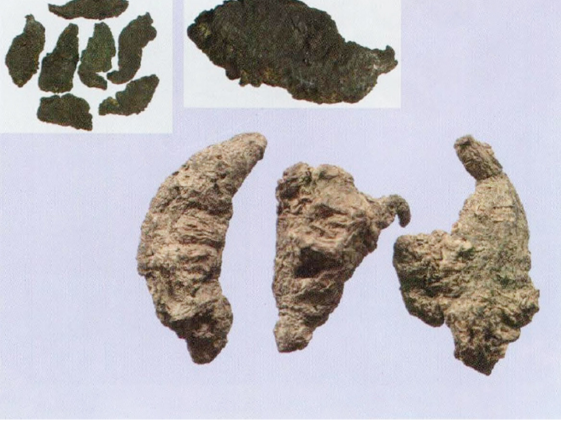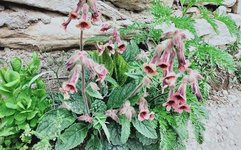 Shu Di Huang (Rehmannia Glutinosa)
Shu Di Huang (Rehmannia Glutinosa)

【Source】Processed product of the plant Rehmannia Glutinosa from the Scrophulariaceae family.【Origin】Mainly produced in Wuzhi, Wenxian, and Boai counties in Henan Province.【Preparation Method】① Take clean raw Rehmannia, mix with yellow wine, place in a steaming container, seal tightly, and steam in a water bath until the wine is absorbed, resulting in a dark black luster and sweet taste. Remove, sun-dry to 80% dryness, cut into thick slices or chunks, and dry. For every 100 kg of raw Rehmannia, use 30-50 kg of yellow wine. ② Clean raw Rehmannia, place in a steaming container, steam until black and shiny, remove, sun-dry to 80% dryness, cut into thick slices or chunks, and dry.【Identification of Properties】The slices are irregular blocks or fragments, varying in size and thickness. The surface is black with a glossy appearance and has high stickiness. The texture is soft yet resilient, not easily broken, with a black and glossy cross-section. The aroma is faint, and the taste is sweet. 【Flavor and Meridian Entry】Sweet, slightly warm. Enters the Liver and Kidney meridians.【Characteristics】This quality is moist, sticky, sweet, and slightly warm, with strong medicinal properties, entering the Liver and Kidney meridians. It is effective in nourishing blood, enriching yin, and replenishing essence and marrow, making it a key herb for treating blood deficiency, essence deficiency, or insufficient yin fluids. However, it can be cloying and may obstruct the stomach, so caution is advised for those with weak spleen and stomach.【Functions】Nourishes blood and enriches yin, replenishes essence and marrow.【Indications】(1) Symptoms of blood deficiency such as sallow complexion, dizziness, palpitations, irregular menstruation, and excessive bleeding. (2) Symptoms of Kidney yin deficiency such as tidal fever, night sweats, nocturnal emissions, and thirst. (3) Symptoms of essence and blood deficiency such as lower back pain, weakness in the legs, dizziness, tinnitus, and premature graying of hair.【Dosage and Administration】Internal use: decoction, 9-15 g; or in pills or powders. It is advisable to use with spleen and stomach strengthening herbs, such as Amomum (Sha Ren) and dried tangerine peel (Chen Pi).【Precautions】This quality is sticky and cloying, which can hinder digestion; therefore, it is contraindicated for those with spleen and stomach qi stagnation, phlegm-damp obstruction, abdominal distension, poor appetite, and loose stools.
【Flavor and Meridian Entry】Sweet, slightly warm. Enters the Liver and Kidney meridians.【Characteristics】This quality is moist, sticky, sweet, and slightly warm, with strong medicinal properties, entering the Liver and Kidney meridians. It is effective in nourishing blood, enriching yin, and replenishing essence and marrow, making it a key herb for treating blood deficiency, essence deficiency, or insufficient yin fluids. However, it can be cloying and may obstruct the stomach, so caution is advised for those with weak spleen and stomach.【Functions】Nourishes blood and enriches yin, replenishes essence and marrow.【Indications】(1) Symptoms of blood deficiency such as sallow complexion, dizziness, palpitations, irregular menstruation, and excessive bleeding. (2) Symptoms of Kidney yin deficiency such as tidal fever, night sweats, nocturnal emissions, and thirst. (3) Symptoms of essence and blood deficiency such as lower back pain, weakness in the legs, dizziness, tinnitus, and premature graying of hair.【Dosage and Administration】Internal use: decoction, 9-15 g; or in pills or powders. It is advisable to use with spleen and stomach strengthening herbs, such as Amomum (Sha Ren) and dried tangerine peel (Chen Pi).【Precautions】This quality is sticky and cloying, which can hinder digestion; therefore, it is contraindicated for those with spleen and stomach qi stagnation, phlegm-damp obstruction, abdominal distension, poor appetite, and loose stools.

